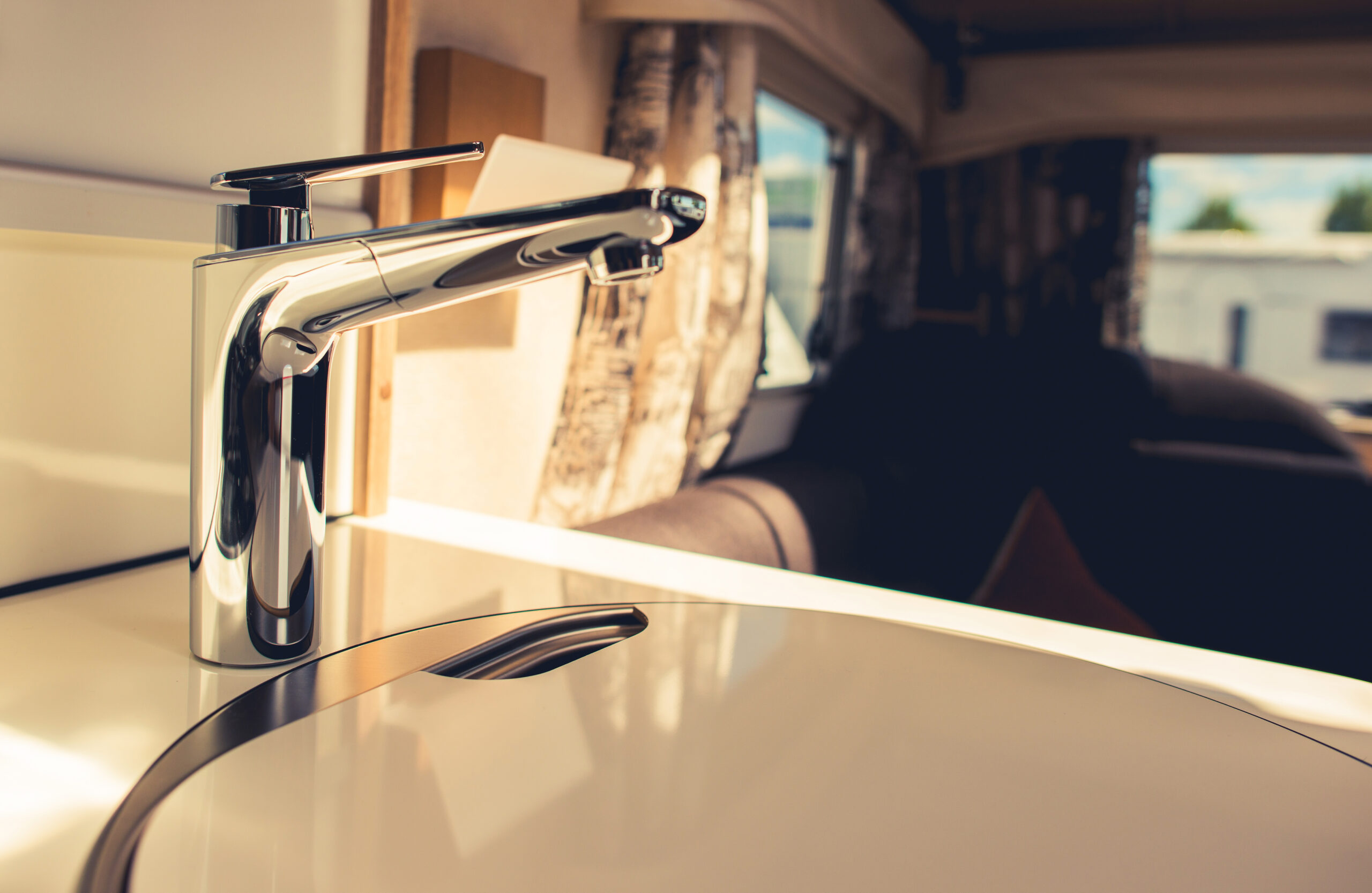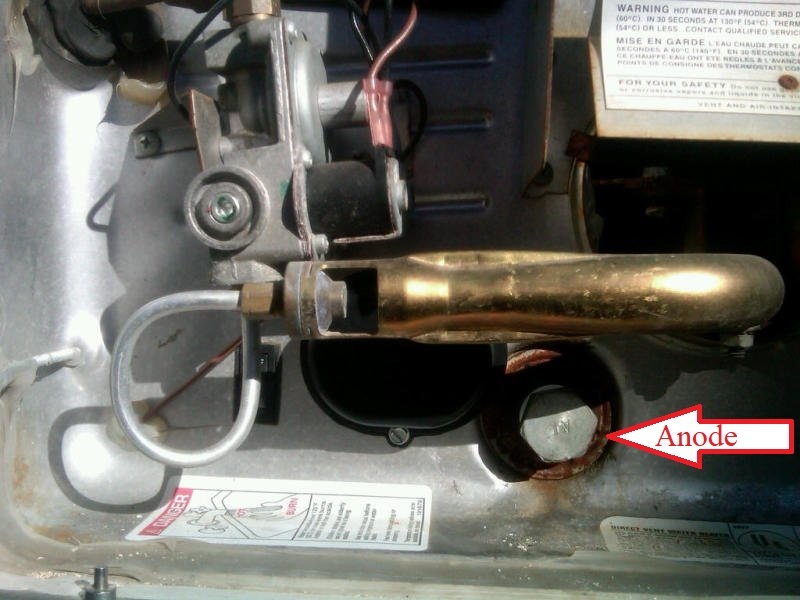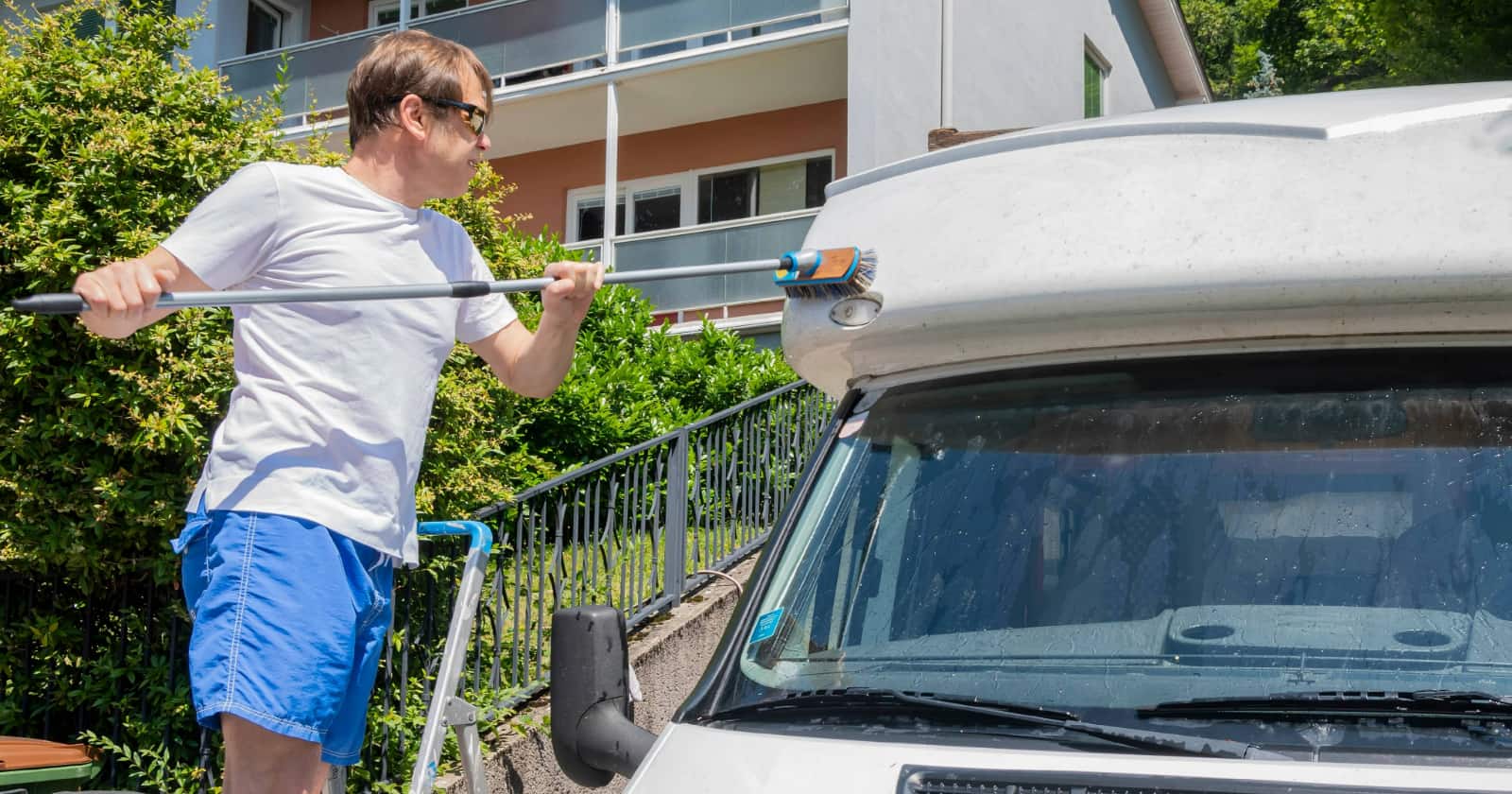
What To Do If Your RV Water Smells Like Rotten Eggs
If your RV water smells like rotten eggs, you are not alone. This odor is a common topic on RV forums and discussed sitting around the campfire.
The first thing you will want to do is determine if the smell is coming from the hot water side, cold side, or both sides of the faucets in your RV.
If the smell comes from both sides of the faucets, the problem most likely lies in your water supply, which can either be your freshwater tank or city water if you are hooked up. If it is only on the hot side, then your water heater is most likely to blame.
“If your RV water smells like rotten eggs, the odor usually is due to high levels of sulfur microbes and hydrogen sulfide gas found in the water tanks.”
Says RV blogger Johnathan Holmes
RV water smells like rotten eggs from the freshwater tank
If the smell is coming from the city water, you will want to notify the campground manager and start using water from your freshwater tank, assuming you have some onboard.
If your freshwater tank is responsible for the smell, you will need to sanitize the tank along with your freshwater plumbing system. The most common method RVers use to sanitize their water tanks involves a solution of bleach and water. For a 40-gallon tank, mix up a solution of approximately one cup of bleach to four cups of water. Adjust proportionately for a larger or smaller tank (1/4 cup for each 16 gallons of tank capacity).
Pour the solution into your empty freshwater tank and fill the remaining tank space with fresh water. Now turn on your water pump and run all the taps in your RV until you smell the bleach solution coming out of each side of each faucet.
Next, shut off the water pump, top off your freshwater tank with freshwater so the solution can reach every part of your tank, and let everything sit overnight. Letting the solution sit will give it time to kill anything that might be growing in your freshwater tank and water lines. The following day, drain the freshwater tank. Once drained, refill the freshwater tank with fresh water and run water through your plumbing system until the bleach smell is gone. Repeat the process as many times as needed.
This video will walk you through the process:
RV water smells like rotten eggs from the water heater
The most common cause of why your RV water smells like rotten eggs is that anaerobic bacteria in your RV water heater tank reacts with the sulfur and magnesium of the anode rod. This interaction produces hydrogen sulfide gas, which smells like rotten eggs.

How to neutralize the rotten egg smell
Start by turning off your water heater (gas and electric if so equipped) and let it cool. Next, with the water pump and city water turned off, carefully release the pressure in the water heater using the pressure relief valve. Then drain the water heater by opening the drain valve or by removing the anode.
Now you are ready to rid your water heater of the smell.
Close the drain valve or reinstall the anode. Next, prepare a solution of two parts vinegar to one part water in a clean bucket or other suitable container. Be sure to make enough to fill the tank in your water heater. Then transfer the solution into your water heater. The following are two common methods for transferring the solution into your water heater:
- Put a funnel into one end of the length of flexible plastic tubing and stuff the other end into the open pressure relief valve. Then pour the solution into the funnel, which will flow into the water heater.
- Backfill the water heater via the hot water faucet closest to the water heater using a transfer pump.
Once the water heater is full of the solution, close the relief valve and turn the water heater on. Let the solution sit in your water heater while it is turned on for 4 to 5 hours. While turning the water heater on with it full of the vinegar solution is not required, most RVers agree heat will help break down buildups better and faster.
After the solution has had time to work, shut off the water heater and let it cool. When cool, drain and thoroughly flush the interior of the water heater tank. Some RVers choose to use a rinse wand for added cleaning. Finally, replace the anode or drain plug and refill with fresh water as usual.
This video demonstrates the above process, along with descaling your water heater while you are at it:
How to prevent the rotten egg smell in your RV
Now that you have eliminated the rotten egg smell from your RV’s plumbing system, consider employing the following tips to keep it from returning.
- Drain the freshwater from your RV’s plumbing system after each use.
- Replace the magnesium anode in your RV, if so equipped, with an aluminum/zinc alloy anode. Unlike magnesium, the zinc will not react with bacteria to create hydrogen sulfide gas.
If your RV water smells like rotten eggs, use the information provided above and enjoy odor free water.
Make sure you keep track of all your RV maintenance and repairs with an online tool such as RV LIFE Maintenance. Not only can you keep all of your documents in one place, but you’ll also receive timely reminders when maintenance is due to help you avoid costly repairs and potentially serious accidents.
Related articles:



